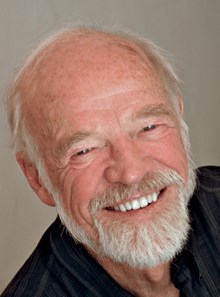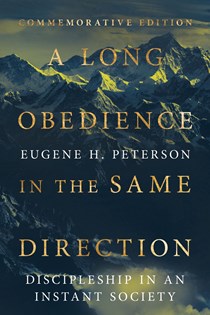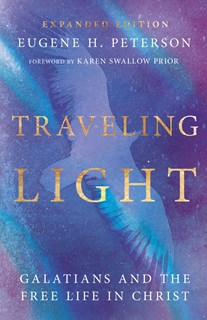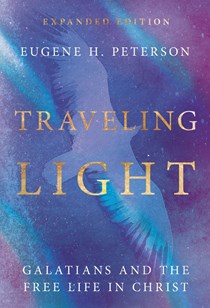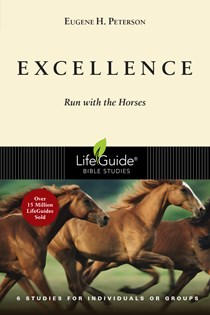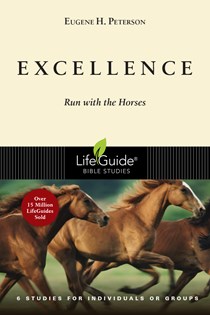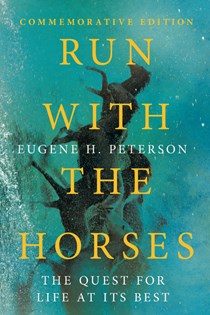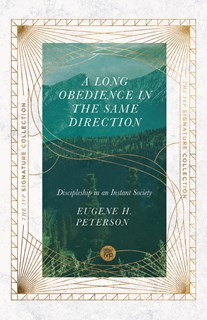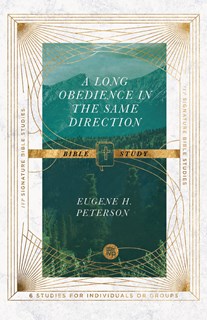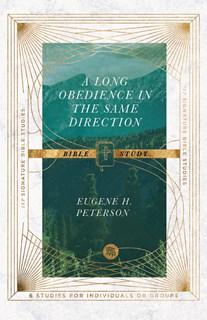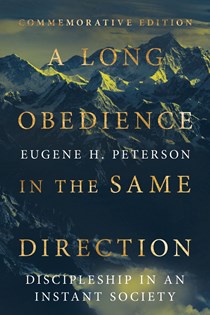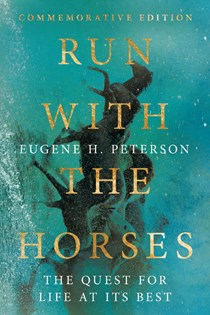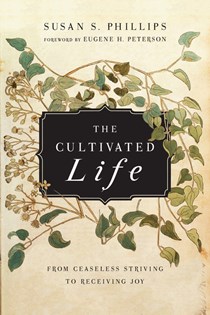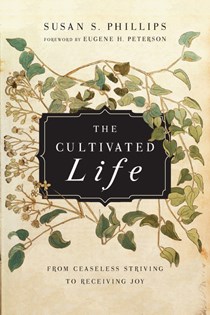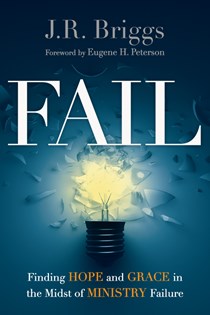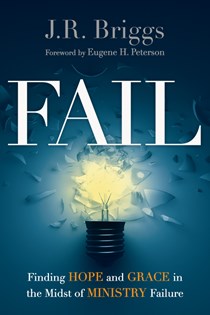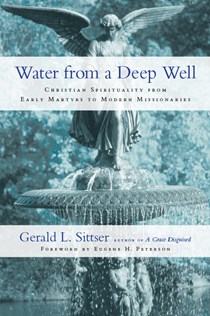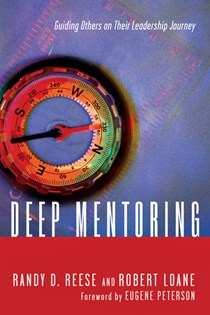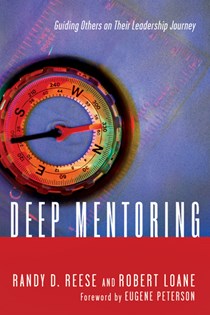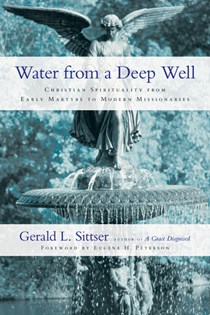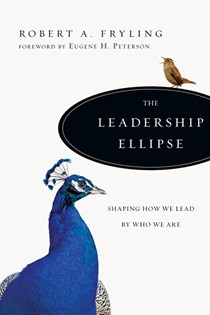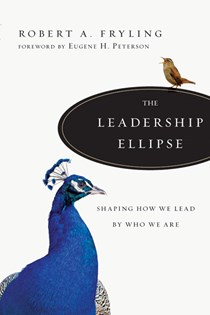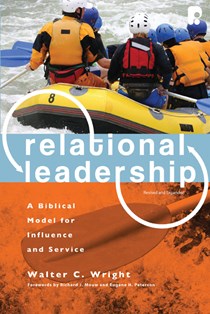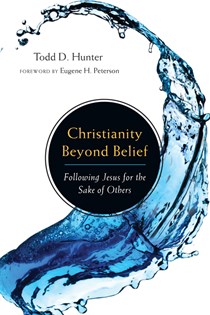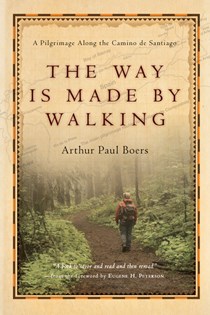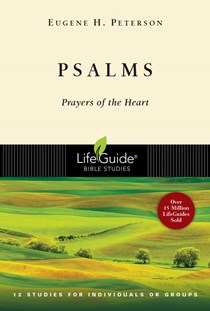Eugene H. Peterson
Words of Inspiration
From A Long Obedience in the Same Direction:
“Pilgrim (parepidēmos) tells us we are people who spend our lives going someplace, going to God, and whose path for getting there is the way, Jesus Christ.”
“Joy is not a requirement of Christian discipleship, it is a consequence. It is not what we have to acquire in order to experience life in Christ; it is what comes to us when we are walking in the way of faith and obedience.”
“There is a great market for religious experience in our world; there is little enthusiasm for the patient acquisition of virtue, little inclination to sign up for a long apprenticeship in what earlier generations of Christians called holiness.”
“I will not try to run my own life or the lives of others; that is God's business.”
“The reason many of us do not ardently believe in the gospel is that we have never given it a rigorous testing, thrown our hard questions at it, faced it with our most prickly doubts.”
“And yet I decide, every day, to set aside what I can do best and attempt what I do very clumsily--open myself to the frustrations and failures of loving, daring to believe that failing in love is better than succeeding in pride."
From Run with the Horses:
“My identity does not begin when I begin to understand myself. There is something previous to what I think about myself, and it is what God thinks of me. That means that everything I think and feel is by nature a response, and the one to whom I respond is God. I never speak the first word. I never make the first move.”
Peterson's Words on Writing
In the epilogue from A Long Obedience in the Same Direction, Eugene Peterson tells the story surrounding the writing of this bestselling work.
"Seventeen publishers rejected it. There was no 'niche' in the market, I was told; I was advised that it was irrelevant to the concerns of contemporary North Americans. And then InterVarsity accepted it for publication. The risk InterVarsity took gave me a foothold and confidence to continue. And I have continued. Twenty years and twenty-eight books later I continue to write out of this same fusion of Scripture and prayer, wanting to give witness and encouragement to the men and women, both laypersons and pastors, who set out to follow Christ."
Read Peterson's entire epilogue here.
”In matters of the Spirit Eugene Peterson was a giant among us. His mastery of the biblical languages led to his fresh translation of the Bible known to us now as The Message. His many books, from A Long Obedience in the Same Direction to As Kingfishers catch fire, brought us vast wisdom into life. His memoir, The Pastor, possesses the rare combination of a pastor’s heart and a pastor’s art. His preaching was always a joy to hear: he would stand straight, heels touching and toes four inches apart, his loving, raspy voice forcing us to lean forward so as to catch every word. Most of all, his broad smile would always welcome us into quiet conversation, or even simply to sit together in perfect silence. Eugene Peterson . . . we will miss him enormously.”
—Richard J. Foster, author of Celebration of Discipline and Streams of Living Water
“I’ve never read a book by Eugene Peterson that didn’t stir and challenge me.”
—Max Lucado, author of In the Grip of Grace
"In the last few years, Eugene's writing has kept me sane. Run with the Horses has been a powerful manual for me. It includes a lot of incendiary ideas. I hadn't really thought of Jeremiah as a performance artist. Why do we need art? Because if we're honest the only way that we can approach God is through metaphor, through symbol. Through Run with the Horses I learned about the prophet's work and it really changed me."
—Bono, lead singer of U2 and cofounder of ONE and (RED)
“Words are weapons for good or ill, and Eugene H. Peterson uses them to wield the sword of Scripture to pierce our minds and hearts. He is one of God’s most gifted wordsmiths, and we are privileged to have his work among us.”
—Jill P. Briscoe, author of Running on Empty
“I treasured my time and friendship with Eugene Peterson. Not just because he was a fine Bible scholar and teacher. Not just because he sent me postcards to encourage me in my work. Whenever I wrote a new book I sent him a copy, and he sent sometimes funny, always challenging words. I cherish his generosity and warmth. My husband William, mostly called Bill, collaborated with him on several projects. Also we visited him and his wife, Jan, at their Montana home. We loved the peace and harmony, the warmth and the wit. May God’s peace be upon him forever.”
—Emilie Griffin, author of Clinging and coauthor with Richard Foster of Spiritual Classics
“There is a clean, bright rigor to honest life before God. Burnishing the language of the Psalms, Eugene Peterson makes that life sing like a taut wire. A long obedience is the only path of discipleship to Jesus, and this is a message we desperately need to hear and implement today.”
—Dallas Willard, author of The Divine Conspiracy
“Eugene Peterson’s special gift is to stand beside us and keep our feet on the ground as he lifts our hearts to God and our minds to godliness. A Long Obedience in the Same Direction, which does this stunningly well, is also the best pathway into the Psalter you are likely to find.”
—J. I. Packer, author of Knowing God
“Eugene Peterson changed the way we read Scripture (once you've read Romans 12 from The Message, no other version will do!) and changed the way we view the role of pastor—using descriptions like the unnecessary pastor, the contemplative pastor, and the pastor as spiritual director—to utterly revitalize the way we experience both! . . . Our world would be impoverished without his contributions. How wonderful to know that the simple joy he experienced in the presence of his Savior in life, is the same joy he experienced as he progressed toward perfect union in death. May we all sit up and take one more lesson from this pastor of pastors!”
—Ruth Haley Barton, founder of the Transforming Center, author of Strengthening the Soul of Your Leadership
“Into a world that does its best to deceive us into believing that everything changes, God speaks his unchanging Word. Ours is a time and a world that needs to hear in fresh ways all that that Word might mean if we would only listen. Eugene has listened. In this book he tells us all that he has heard about those fixed facets of that unchanging Word.”
—Michael Card, recording artist
“It has been said in today’s instant society that evangelism has never been easier: it’s discipleship that has never been harder. Eugene Peterson not only instructs us in his considerable wisdom about authentic discipleship, he helps us see the passion and excitement of living lives fully devoted to Jesus. And with the current torrent of interest in spirituality, his guidance on what constitutes genuine spirituality is pure gold.”
—Rebecca Manley Pippert, author of Out of the Saltshaker
I was a young editor just starting out at IVP when the full manuscript of Eugene Peterson’s A Long Obedience in the Same Direction crossed my desk. I knew that conventional wisdom dictated that sermon collections never succeeded in the marketplace unless the pastor was already well known, but for some reason I kept reading, chapter after chapter. Soon I sent a note to our Editorial Director Jim Sire to “send contract immediately.” These insightful, challenging meditations were not simply transcriptions of preached sermons. They were crafted and honed to be read. Peterson recognized that the spoken word and the printed word are not the same. And he was dedicated to the craft of writing, so much so that he had negotiated summer writing retreats into his contract with Christ Our King Church from its very beginning.
For more than three decades he dedicated summer retreats at his beloved cabin on Flathead Lake in Montana to transforming the preached word into the written word. After the publication and success of A Long Obedience in the Same Direction in 1980, there followed in succession Traveling Light (1982), Run with the Horses (1983), and Earth & Altar (1985). It was my privilege to serve as the editor for the latter three volumes. Eugene was a wonderful author to work with—a skilled, careful writer with keen spiritual insight, yet modest and open to suggestion.
I had a wonderful visit with Eugene and his wife, Jan, at their now expanded and winterized Montana cottage in August 1998 while I was on sabbatical. They were warm, cordial, gracious hosts, and I was grateful for their friendship. My last correspondence with Eugene was when we were both retiring at the end of 2013. He wrote of how requests to write or speak kept coming his way, and he had to say “I’m not doing that anymore.” The inquirer would keep on, and Eugene would say (quoting Anne Lamott), “’No’ is a complete sentence.” After about the fourth no, he noted, they would realize he was serious.
Eugene’s impact on individuals, pastors, the church is immeasurable—a life, well-lived in service to his King.
—Jim Hoover, retired associate editorial director, IVP Academic
Farewell, Eugene
By Philip Yancey, bestselling author of The Jesus I Never Knew and What's So Amazing About Grace?
This week I lost a friend, and the world lost one of God’s favorites: Eugene Peterson. Other blogs and websites are reporting on his many accomplishments as a pastor, professor, and author. Rather than repeat the many well-deserved eulogies in his honor, I thought back to snapshots of some of the times that our paths crossed.
The Message. First, Eugene rewrote the book of Galatians for his local church, the genesis of what would become a 12-year-long undertaking to render the original languages of the Bible into modern, colloquial English. I remember a weekend when a group of us writers got together to bemoan our plight, gossip about publishers, and share each other’s works in progress. Eugene had just paraphrased some of the Psalms, his favorite Bible book, and read them to us.
Over dinner that evening, the writer Harold Fickett said, “Eugene, I think you’ve found your calling. Stop whatever else you’re doing and paraphrase the entire Bible.” Eugene stared at him for a moment, flashed that winning smile, and gave his patented “Heh, heh” laugh. To our astonishment (and his), he embarked on that herculean effort.
More than a decade later, Eugene called me with a question. By then The Message was well on its way to selling over twenty million copies. “Philip, what am I supposed to do with all this money?” he asked. “I’m a pastor, a college professor. I’m not used to this.”
Vail. One of Eugene’s admirers sponsored a gathering of around forty friends at a mountain resort in Colorado and asked me to moderate the weekend. “We’d like you to respond to some of Eugene’s prepared talks and also interview him.” Great, I thought, I’ll save up all the questions that befuddle me and let Eugene answer them.
At the first session, I introduced Eugene by recalling the single fact that impressed me most about Eugene—not his theological acumen, his accomplishments, or his published works. “Eugene, I heard that when you were a young man, Roger Bannister visited your city shortly after becoming the first human to run a four-minute mile. Is it true that you ran an exhibition race with him and finished in 4'07"?”
Eugene gave that familiar smile, leaned back, and said. “Don’t believe everything you hear. I think it was more like 4'12".”
During the rest of the weekend, I managed to sneak in all of my questions. Each time he would think for a few minutes before responding. His most common answer: “I don’t know.” No one could out-humble Eugene.
Pastor. As a public speaker, Eugene broke every rule in the book. His voice was strained and hoarse, somewhat like Bill Clinton’s. He stood with his feet close together, rocking back and forth on his toes. I could hardly believe he grew up in the Pentecostal tradition, this gentle introvert who never raised his voice and made few hand gestures. Yet when Eugene spoke, people listened.
The median church in the United States—the point at which half the churches are smaller and half are larger— has 75 regular participants in worship on Sunday mornings. If you take the average church size, including all the megachurches, the average church still has only 186 attenders. I know many overlooked pastors who look to Eugene for inspiration: whereas the media-savvy pastors of large churches get most of the publicity, Eugene showed that “success” in the shepherd role is measured more by faithfulness than by glitz and glamour. He lived out one of his book titles, A Long Obedience in the Same Direction.
Tucked away in a remote setting overlooking Flathead Lake in Montana, Eugene had an amazing naivete about the surrounding culture of celebrity and entertainment. When someone told him that Bono of the band U2 wanted to visit him, he asked, “And who is he?” On the day Princess Diana died, Eugene realized that he had never heard of her. He was far more interested in another person who died that same day: Mother Teresa.
Humor. Others are rightly reporting on Eugene’s purity and spirituality. Like John Stott, Eugene presented an example of a Christian leader who practiced what he preached, a role model sorely needed in a time when the media focus on leaders who succumb to temptation. Eugene taught us about “ordinary” spiritual disciplines such as prayer, staying married, showing up to worship in boring churches, and bearing one another’s burdens in community.
At the same time, Eugene had a wicked sense of humor. I love the story Eugene tells in his memoir, The Pastor. Serving under the Presbyterian Church USA, Eugene started a church in Maryland, which after three years grew to a membership of 200. As required, he submitted a monthly report to the denomination’s headquarters in New York City, consisting of one page of statistics and another on his own personal reflections. He writes, “After a year or so of doing this without any response…I started to wonder if my denominational superiors were reading past the first page of statistics. I thought I would test out my suspicion and have a little fun on the side.”
The next month he described a long slow slide into depression, sleeping little, working as a robot with no spirit, no zest. Should he continue in the pastorate? Could they recommend a counselor? No response.
The next month he wrote about a drinking problem that was affecting his Sunday preaching. Where could he get treatment? Again, no response.
The following month, he reported on an affair with a needy woman who ended up sleeping with him in the sanctuary, only to be discovered by women arranging flowers for Sunday worship. Each month Eugene exercised his storytelling gifts by concocting more elaborate fictions (always with his wife Jan’s cooperation). He told of spicing up a dull liturgical service with psychedelic mushrooms—could they please advise on whether he should proceed.
After three years, his supervisors invited him to New York for a review of his ministry. He asked if they had read his reports. “Oh, but we did,” the committee assured him. “We read those reports carefully; we take them very seriously.” Then he recounted his supposed drinking problem, his sexual adventure, and use of hallucinogens in the service.
“Their faces were blank, and then confused—followed by a splendid vaudeville slapstick of buck passing and excuse making. It was a wonderful moment. I replay the scene in my imagination a couple times a year, the way some people watch old Abbott and Costello movies.”
Home. I thought I had the ideal office for a writer, overlooking a mountain stream in the beautiful state of Colorado. Then I visited Eugene’s home, built in part by his ancestors, on a high ledge overlooking a Montana lake. We stood together on the porch, breathing in the pure air and the forest scents.
After a few moments of gazing at the idyllic scene, Eugene recalled one winter when ice was still forming on the lake. A deer in search of water wandered out too far, and fell through the ice. He knew that if he tried to help, the deer would panic and swim even farther into the frigid water. For half an hour he watched helpless as the young doe thrashed around in the water, trying to gain some purchase on the ice shelf, which immediately broke under her weight. Finally, against all odds, she somehow hauled herself up on an edge of more solid ice, shook herself and stood there for a moment, her sides heaving, and then bounded up the slope toward freedom.
I thought of that scene when I read the Peterson family’s reports of Eugene’s last days. “He is now in his own bedroom with a spectacular view of Flathead Lake. He is comfortable and well-cared for. It appears that he is talking with people that no one else can see. These, I believe, are not hallucinations; rather, he is being prepared for something too glorious for words.”
Like the deer, Eugene bounded away, free at last. We’ll miss you, dear friend.
Eugene Peterson, an Appreciation
By Luci Saw, author of Adventure of Ascent and Thumbprint in the Clay
Eugene was talking (not sermonizing. Rather, thinking aloud) with a group of writer friends in Wheaton. This was way back in the 70s. I can still see him standing in front of us in a posture that became familiar—feet together, swaying back and forth a bit in rhythm with his words. His voice, even then, was somewhat husky and soft-spoken, but the words were galvanizing as he told stories that came from his own life as a pastor, as a fellow human being, as a friend of Christ. He was a great story-teller and his narratives vibrated with a kind of quiet authenticity that was magnetic and memorable. I have scores of photographs taken at various intersections I had with Eugene and Jan, his wife. over scores of years. They habitually showed a genial face with a gray mustache and beard, and a smile that was so beatific that his blue eyes almost disappeared among the creases.
The Chrysostom Society was founded over thirty years ago with the purpose of providing fellowship and support for writers of faith. Early on I suggested Eugene for membership. He accepted with enthusiasm and in the many years following his presence brought a glow of authentic delight at being among these kindred spirits. Though he was not one for small talk, when he spoke it was with a gravitas that called for rapt attention. He and Jan often led our devotional times together. He brought among us a kind of holy space and an example of enduring friendship.
Back in the ‘80s, as president of Harold Shaw Publishers I would attend the annual convention of Christian publishers. During one such event I was contacted with an idea. Would I be willing to work with Navpress on Eugene’s translation of The Message, specifically the psalms and the books of wisdom? Of course I said Yes! This ongoing project involved going over his first drafts of the work and making suggestions that would affect the poetic flow of the translation. This was before the advent of the internet, and the drafts and suggested changes went back and forth through the mail. I loved the work. It was a rare opportunity to connect with the spirit of the psalmist and the spirit of Eugene Peterson whose own friendship and support steadied me in my spiritual ups and downs.
Eugene was one who advocated the practice of receiving spiritual direction, particularly for writers who, as he commented, tend to “fall in love with their own words and ideas” and need a corrective for their spiritual health as well as for finding soul friendship. He told me of his own such relationship with a Benedictine nun. I asked him, “How do I go about finding the right individual?” “Pray about it, and see whose name shows up in your head,” he said. So I did. To my surprise it was the Episcopal Bishop of Chicago, a friend who told me he enjoyed our times of prayer and seeking together and preferred them to chairing committee meetings. Since then I’ve had the benefit of several such soul friends over the years, all of whom have steadied and corrected me when I needed it most.
I routinely sent first drafts of my new poems to Eugene. He responded with enthusiasm and suggestions and wrote an introduction to my book Scape in which he makes a kind of proclamation about the power of poetry and the value of metaphor. “If we let [metaphor] have its way with us it pushes us to clarity at a fresh level.” He also believed that poetry is essential for all of us who are dealing with God and the Scriptures. Many of Eugene’s personal Christmas cards included his own deft, deep poems.
My husband John and I are tent campers, and for several summers we would drive east, camping along the way from Bellingham, Washington, through Idaho and Pend d’Oreille to Kalispell, Montana and the Peterson home in Lakeside, where we were welcomed and fed and encouraged. I loved the way Eugene and Jan prepared meals together. We had long, lovely discursive discussions but we also played backgammon. We swam in icy cold Flathead Lake. We canoed. As we grew older we also gave in to the need to take afternoon naps. Kindred spirits. Friends of the heart.
I’ve heard similar stories from a multitude of other soul-seekers. I am just one of many who continue to praise God for the life of Eugene Peterson—scribe, pastoral presence, encourager of seekers, friend of God.


